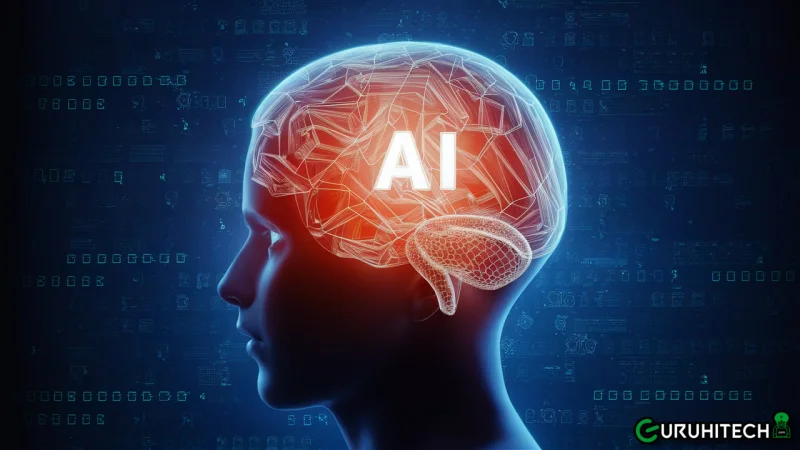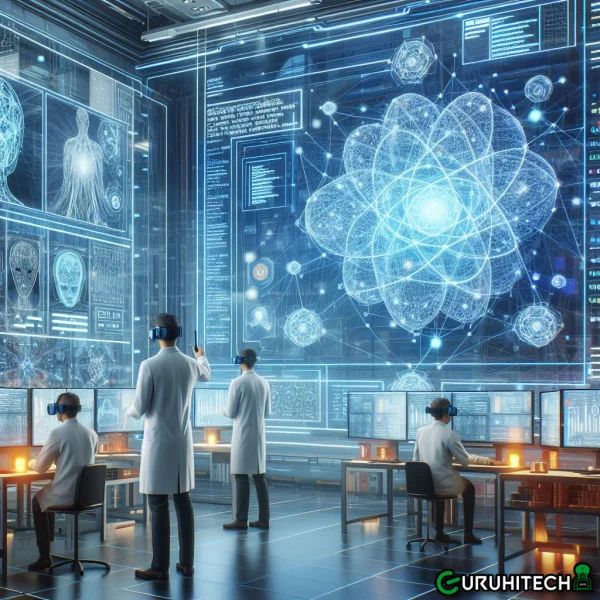Integration of AI with Workflow Automation for Smarter Business Processes

In the modern business environment, efficiency and informed choices are critical for staying competitive. Integrating Artificial Intelligence (AI) with existing workflow automation systems is an effective technique to achieve these objectives. Businesses may streamline operations, improve accuracy, and make better decisions by merging AI with automation. Let’s look at how firms can effectively integrate AI technologies into their workflow automation systems to improve choices and process efficiency.
An AI presentation generator is a powerful tool for crafting stunning slideshows in minutes. It uses advanced algorithms to design visually appealing layouts, customize themes, and add content seamlessly. Whether for business, education, or personal use, AI-powered solutions simplify the process, ensuring professional results without the need for design expertise.
Understanding AI and Workflow Automation
What is AI?
Artificial intelligence (AI) is the imitation of human intelligence processes by technology, specifically computer systems. These processes include learning (acquiring information and rules for using it), reasoning (using rules to arrive at approximate or definite conclusions), and self-correction. Natural language processing (NLP), machine learning (ML), and robotics are all applications that make use of AI technologies.
What is Workflow Automation?
Workflow automation is the use of technology to automate repeatable business processes, which reduces the need for manual intervention. It helps to streamline operations, increase uniformity, and reduce errors. Document management, customer support, and financial procedures are among the most common applications.
Benefits of Integrating AI with Workflow Automation
Combining AI with workflow automation can provide several significant benefits:
- Enhanced Efficiency: AI can handle large volumes of data and complex tasks quickly and accurately, improving overall workflow efficiency.
- Improved Decision-Making: AI can analyze data and provide insights, helping businesses make more informed decisions.
- Cost Savings: Automation reduces the need for manual labor, leading to cost savings.
- Scalability: AI-driven automation can easily scale to handle increasing amounts of work without a proportional increase in costs.
- Consistency and Accuracy: AI ensures processes are executed consistently and accurately, reducing the risk of human error.

Steps to Integrate AI with Workflow Automation
1. Identify Key Processes for Automation
Start by identifying repetitive tasks and processes that can benefit from automation. These could include data entry, customer support, or inventory management. Look for areas where AI can add value by providing insights, automating decision-making, or processing large amounts of data.
2. Choose the Right AI Tools
Select AI tools that align with your business needs. For example:
- Natural Language Processing (NLP): Ideal for customer support chatbots.
- Machine Learning (ML): Useful for predictive analytics and trend analysis.
- Computer Vision: Helpful in quality control and monitoring.
3. Integrate AI with Existing Systems
Use APIs and other integration tools to connect AI technologies with your existing workflow automation tools. This ensures seamless data flow and process execution. Collaborate with IT professionals to ensure smooth integration and address any technical challenges.
4. Train Your AI Models
AI systems need to be trained with relevant data to perform effectively. Ensure your AI models are trained on high-quality, representative data to improve accuracy and reliability. Continuously update and refine your models to keep up with changing business needs and data patterns.
5. Monitor and Optimize
Continuously monitor the performance of your AI-integrated workflows. Use analytics to identify areas for improvement and optimize processes for better efficiency and outcomes. Regularly review and update your AI models and automation tools to ensure they are delivering the desired results.
Examples of AI-Enhanced Workflow Automation
Customer Support
AI chatbots integrated with customer support systems can handle common inquiries, allowing human agents to focus on more complex issues. This improves response times and customer satisfaction.
Sales and Marketing
AI-driven predictive analytics can automate lead scoring, helping sales teams prioritize their efforts on high-potential leads. Marketing automation platforms can use AI to personalize campaigns and optimize content delivery.
Human Resources
AI can automate resume screening and candidate matching, speeding up the hiring process and ensuring the best talent is selected. Workflow automation tools can manage onboarding processes, reducing administrative burden.
Supply Chain Management
AI can predict demand trends and optimize inventory levels, while workflow automation handles order processing and logistics. This reduces costs and improves supply chain efficiency.
Conclusion
Integrating AI and workflow automation is an effective technique for firms seeking to improve making decisions and process efficiency. Companies may use AI to automate regular processes, obtain useful insights, and enhance overall operational efficiency. The key to success is to identify the relevant processes for automation, choose appropriate AI technologies, and regularly monitor and optimize performance. Embrace this strong mix to stay ahead of the competition and promote smarter, more efficient operations.
Ti potrebbe interessare:
Segui guruhitech su:
- Google News: bit.ly/gurugooglenews
- Telegram: t.me/guruhitech
- X (Twitter): x.com/guruhitech1
- Bluesky: bsky.app/profile/guruhitech.bsky.social
- GETTR: gettr.com/user/guruhitech
- Rumble: rumble.com/user/guruhitech
- VKontakte: vk.com/guruhitech
- MeWe: mewe.com/i/guruhitech
- Skype: live:.cid.d4cf3836b772da8a
- WhatsApp: bit.ly/whatsappguruhitech
Esprimi il tuo parere!
Ti è stato utile questo articolo? Lascia un commento nell’apposita sezione che trovi più in basso e se ti va, iscriviti alla newsletter.
Per qualsiasi domanda, informazione o assistenza nel mondo della tecnologia, puoi inviare una email all’indirizzo [email protected].
Scopri di più da GuruHiTech
Abbonati per ricevere gli ultimi articoli inviati alla tua e-mail.
